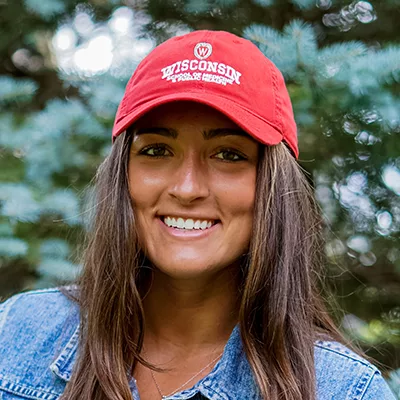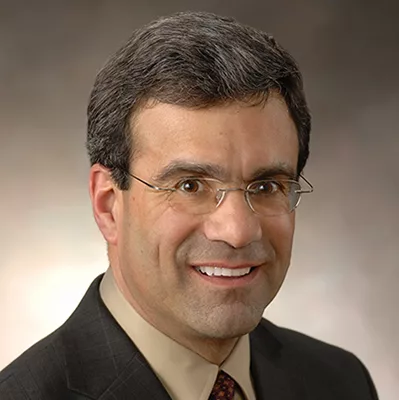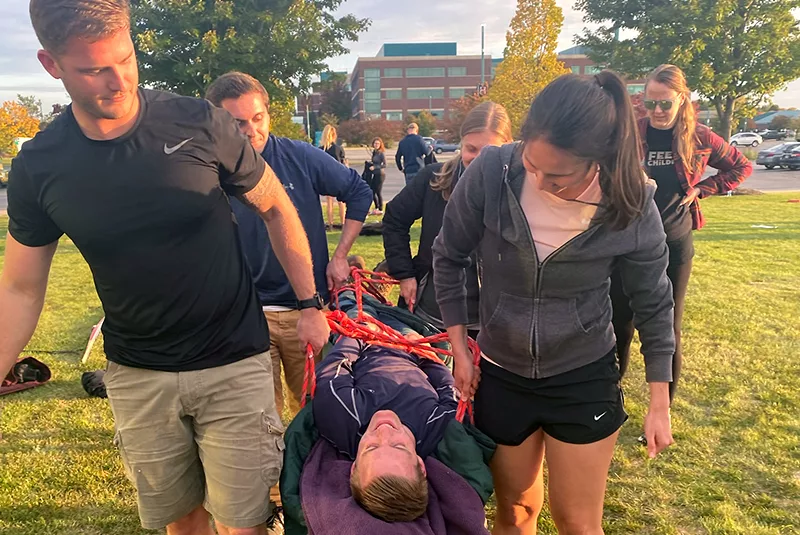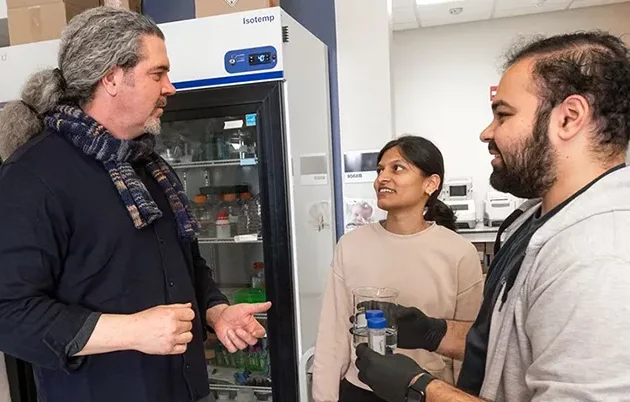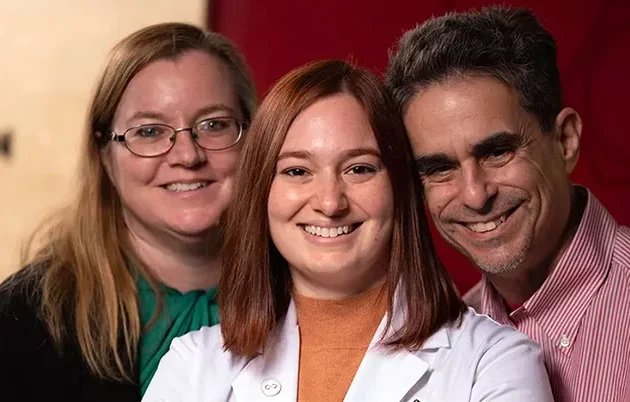He continues, “I’m passionate about helping patients form lifelong healthy habits. I’m also passionate about the ways in which public health initiatives can improve children’s health in an entire community, even more so in rural communities.”
Gauthier shares, “A huge strength of the WARM program is that it allows medical students like me to train in the towns and hospitals where they are considering working one day. Many of the physicians I worked with in Green Bay were graduates of the WARM program. I think this is a testament to the effectiveness of the program in training physicians who not only want to live and work in Wisconsin, but who are passionate about training the next generation of physicians who share the same aspirations.”
He continues, “In the WARM program, a lot of our public health work has been with rural communities. For example, several classmates and I worked with the Diabetes Prevention Program through the YMCA of Door County to create and deliver a presentation to participants about the development of diabetes, its effects on the body, and how lifestyle changes work to prevent the disease and its sequelae. Medicine, public health, and rural health — as a student in the WARM program, I have gained valuable experience in each of these domains.”
Gilsdorf’s choice of career was deeply influenced by the health care his father received between his diagnosis with Stage IV kidney cancer and his death, shortly after Gilsdorf’s high school graduation — at which he was the valedictorian. He was grateful that the health care team made it possible for his dad to be able to attend the graduation ceremony — a goal he had set for himself.
“In the years since my dad’s passing, I have come to realize that when a patient and their family are in their most vulnerable moments, and there is seemingly nothing left to offer, physicians always have their humanism and the ability to respect and honor their patient’s wishes. This display by my dad’s physician and health care team is one that I hope to offer my patients and their families during their toughest days,” says Gilsdorf, who plans to enter internal medicine and return to northeastern Wisconsin “to help care for the family and friends of those who raised me and helped make me who I am today.”
Alumni Experiences
Calling himself “the dinosaur of the program,” H. Clay Dean, MD ’11, FACS, was among the first WARM cohort; he completed his medical education in Marshfield and Rice Lake. Following completion of a general surgery residency at Iowa Methodist Medical Center in Des Moines, Dean became a general surgeon at Sauk Prairie Healthcare in Prairie du Sac, Wisconsin — less than 50 miles from where he grew up.
Reflecting on his choice to enroll in WARM, he notes, “The program’s values and goals lined up well with my aspirations as a future rural physician. I felt like my training allowed me to hit the ground running when starting my residency. It allowed me to have autonomy with patient care and take ownership of the patients I was following. It also allowed me to experience multiple practices from tertiary care to community-based.”
Noting that he, his wife, and two sons love living in rural Wisconsin, Dean continues, “A rural practice is vastly different from an urban practice or tertiary-center practice. Experiencing the interactions my attendings had with their patients and understanding their concerns has helped me better serve my patients in my current practice. … Not always having substantial resources in a rural community but still being able to provide my patients with great surgical care is a challenge, but one that rural general surgeons have to be able to adapt to.”
On the opposite side of Wisconsin, Breanna O’Neil, MD ’17, grew up on a farm near Plymouth, Wisconsin, and practices general surgery nearby in Manitowoc County. Like the Dean family, O’Neil, her husband, and their two sons love living a rural lifestyle in the Badger State.
Originally planning to become a veterinarian, O’Neil changed course when her mother was diagnosed with breast cancer and encouraged her to “pursue medicine and take care of cancer patients.”
O’Neil says, “I saw the need for doctors to care for patients in rural Wisconsin, and I knew that I wanted to ultimately practice in this setting.”
She continues, “Through the WARM program in Green Bay, I got exposure to a variety of community practice environments in rural Wisconsin, and training in social issues that impact health care uniquely in rural areas.”
Noting that rural general surgeons do everything from trauma care to appendectomies to cancer care, she says, “Fewer and fewer general surgeons want to go into a rural practice, and I think one reason is that they haven’t had the opportunity to see a rural community practice during medical school. I love operating and being able to make patients feel better by fixing a hernia or taking out a gallbladder. Nothing is more rewarding than knowing I gave my patients another wedding or graduation or visit with grandchildren by surgically treating their breast cancer or other condition. I hear all the time how grateful patients and their families are to have health care available close to home.”
